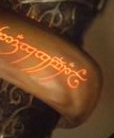Forum
Welcome Guest |
|
|---|---|
 Author Author |
Topic: |
|---|
| Lex |
|
||||||||
| dirk_math |
|
||||||||
| Lex |
|
||||||||
| dirk_math |
|
||||||||
| Lex |
|
||||||||
| Lex |
|
||||||||
| thorsten |
|
||||||||
| dirk_math |
|
||||||||
| Lex |
|
||||||||
| dirk_math |
|
||||||||
| Lex |
|
||||||||
| thorsten |
|
||||||||
| Lex |
|
||||||||
| dirk_math |
|
||||||||
| thorsten |
|
||||||||
| dirk_math |
|
||||||||
| Lex |
|
||||||||
| Members Online |









 possessive case - dual endings
possessive case - dual endings

 ), so the point is:
), so the point is: